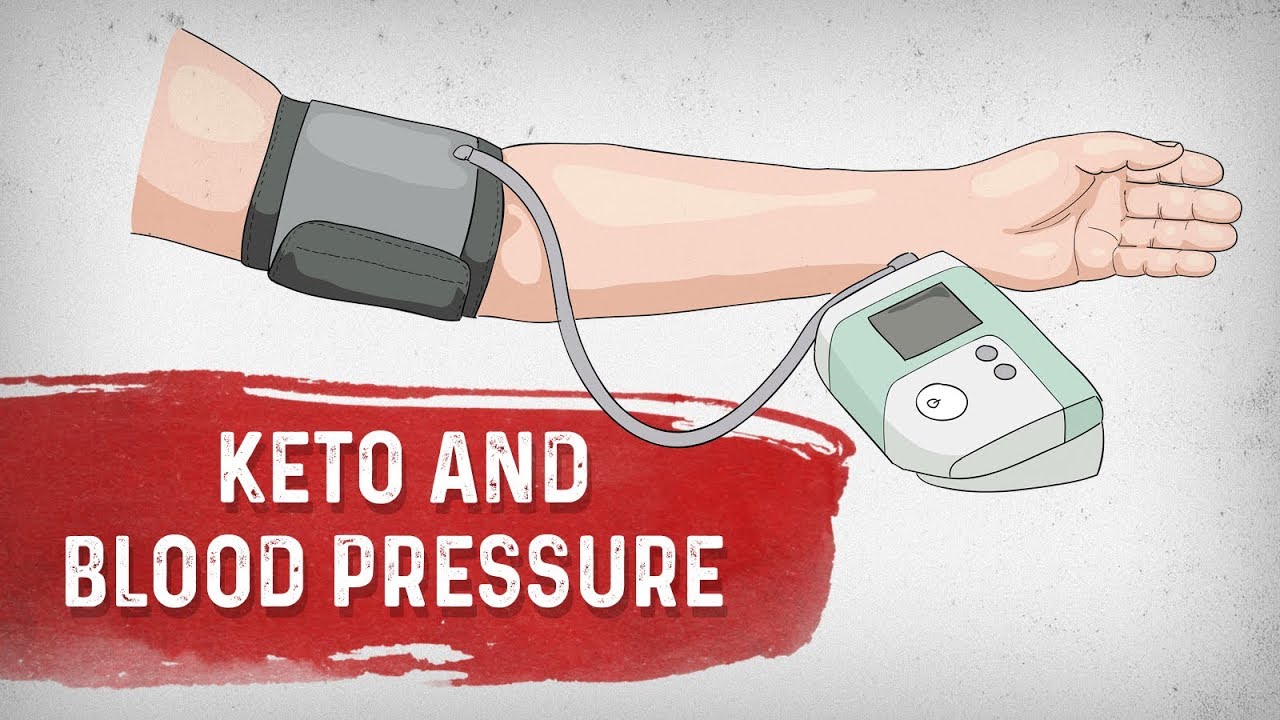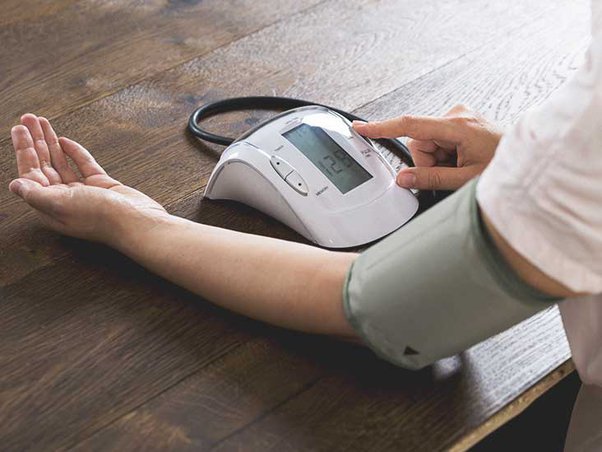Why Does Blood Pressure Drop on Keto Diet

The ketogenic diet, or keto diet, is a high-fat, low-carbohydrate diet that has gained popularity in recent years as a weight-loss and health-improvement tool. While the keto diet has numerous benefits, one side effect that some individuals may experience is a drop in blood pressure.
In this article, we will examine the causes of this drop in blood pressure and its potential implications.
Quick Navigation
- 1 What is Keto Diet?
- 2 What is Blood Pressure?
- 3 How Does the Keto Diet Affect Blood Pressure?
- 4 Reduced Insulin Resistance
- 5 Decreased Sodium Intake
- 6 Increased Potassium Intake
- 7 Weight Loss
- 8 Why is a Drop in Blood Pressure Significant?
- 9 Low Blood Pressure Symptoms
- 10 Medication Adjustments
- 11 What Can You Do to Maintain Healthy Blood Pressure on the Keto Diet?
- 12 Monitor Your Blood Pressure
- 13 Stay Hydrated
- 14 Consult a Healthcare Professional
- 15 The best ways to monitor your blood pressure on a keto diet
- 16 When to see a doctor about changes in blood pressure on the keto diet
- 17 6 Tips to Improve Blood Pressure
- 18 Here Are Some Of The Foods You May Eat On Keto
- 19 Low Blood Sugar Issues on Keto Diet
- 20 Conclusion:
What is Keto Diet?
The ketogenic diet, commonly referred to as the keto diet, is a low-carb, high-fat diet that has gained popularity in recent years. The primary goal of the keto diet is to get the body into a state of ketosis, where it burns fat for fuel instead of carbohydrates.
The typical keto diet consists of high amounts of healthy fats, moderate amounts of protein, and low amounts of carbohydrates. This macronutrient balance forces the body to use stored fat for energy, leading to weight loss and other health benefits.
On a keto diet, you’ll want to avoid sugary and starchy foods like bread, pasta, and candy. Instead, focus on consuming nutrient-dense, low-carb foods like leafy greens, fatty fish, meat and poultry, and healthy oils.
In addition to promoting weight loss, the keto diet has been shown to improve blood sugar control, reduce inflammation, and improve brain function. It can also help with conditions such as epilepsy, Parkinson’s disease, and type 2 diabetes.
However, it’s important to note that a keto diet can also come with potential risks, such as nutrient deficiencies and digestive discomfort. That’s why it’s crucial to work with a doctor or registered dietitian to ensure you’re following a healthy, balanced keto diet.
What is Blood Pressure?
Blood pressure is the force of blood pushing against the walls of your arteries as your heart pumps blood. It is measured in millimeters of mercury (mmHg) and expressed as two numbers: systolic and diastolic. Systolic pressure, the first number, represents the pressure when your heart beats, while diastolic pressure, the second number, represents the pressure when your heart is at rest between beats.
Normal blood pressure is considered to be below 120/80 mmHg. High blood pressure, or hypertension, is defined as a systolic pressure of 140 mmHg or higher and/or a diastolic pressure of 90 mmHg or higher.
How Does the Keto Diet Affect Blood Pressure?
The keto diet restricts carbohydrates and encourages the consumption of high-fat, moderate-protein foods. This shift in dietary intake can lead to a decrease in blood pressure for several reasons.
-
Reduced Insulin Resistance
Insulin resistance is a condition in which the body’s cells become less sensitive to the effects of insulin, leading to high blood sugar levels. The keto diet has been shown to improve insulin sensitivity, reducing the need for insulin in the body. This can, in turn, lower blood pressure.
-
Decreased Sodium Intake
The keto diet often leads to a decrease in sodium intake, as processed foods high in salt are limited or eliminated. High levels of sodium in the diet can contribute to high blood pressure, so reducing sodium intake can help lower blood pressure.
-
Increased Potassium Intake
The keto diet encourages the consumption of foods high in potassium, such as avocados, spinach, and nuts. Potassium is a mineral that helps regulate blood pressure and counteracts the effects of sodium in the body. An increase in potassium intake can help lower blood pressure.
-
Weight Loss
Weight loss is a common result of following the keto diet. Excess weight and obesity can contribute to high blood pressure, so losing weight can help lower blood pressure.
Why is a Drop in Blood Pressure Significant?

A drop in blood pressure can be a positive side effect for individuals with high blood pressure, but it can also cause concern for those with normal or low blood pressure.
-
Low Blood Pressure Symptoms
A significant drop in blood pressure can lead to symptoms such as dizziness, fainting, fatigue, and lightheadedness. These symptoms can be especially concerning for individuals who are older or have pre-existing medical conditions.
-
Medication Adjustments
If you are taking medication to manage high blood pressure, a drop in blood pressure may result in the need for a dosage adjustment. It is important to discuss any changes in blood pressure with your healthcare provider to determine if a medication adjustment is necessary.
What Can You Do to Maintain Healthy Blood Pressure on the Keto Diet?
If you are following the keto diet and experiencing a drop in blood pressure, there are several steps you can take to maintain healthy blood pressure levels.
-
Monitor Your Blood Pressure
Regularly monitoring your blood pressure is crucial to ensure that it remains within a healthy range. You can purchase a home blood pressure monitor or have your blood pressure checked at your healthcare provider’s office.
While the keto diet encourages a decrease in sodium intake, it is still important to ensure adequate salt and electrolyte intake to maintain healthy blood pressure levels. Adding a pinch of salt to your meals and drinking electrolyte-rich beverages, such as coconut water, can help prevent a significant drop in blood pressure.
-
Stay Hydrated
Staying adequately hydrated is crucial for maintaining healthy blood pressure levels. Dehydration can cause a drop in blood pressure, so it is important to drink plenty of water throughout the day.
-
Consult a Healthcare Professional
If you are experiencing symptoms of low blood pressure or are concerned about changes in your blood pressure, it is important to consult a healthcare professional. They can provide personalized recommendations and monitor your blood pressure to ensure it remains within a healthy range.
The best ways to monitor your blood pressure on a keto diet
- Use a Home Blood Pressure Monitor: Keep a monitor at home and take regular readings to track changes in your blood pressure.
- Visit Your Healthcare Professional: Schedule regular check-ups with your doctor to have your blood pressure measured accurately.
- Wear a Tracking Device: Wearable devices can track your blood pressure and other health metrics, giving you continuous insight into your health.
- Keep a Record: Write down the date, time, and reading of each measurement to track any changes and discuss with your doctor.
Remember, blood pressure can fluctuate throughout the day and be affected by factors like stress, exercise, and caffeine. Take readings at different times and in different environments for a comprehensive understanding of your blood pressure levels.
Monitoring your blood pressure is important for maintaining optimal health on a keto diet. By using these methods, you stay informed and in control of your health.
When to see a doctor about changes in blood pressure on the keto diet
- Symptoms of Low Blood Pressure: If you experience symptoms such as dizziness, fainting, or fatigue, it’s important to see a doctor right away.
- Concerns About Changes: If you’re concerned about any changes in your blood pressure, schedule an appointment with your doctor to discuss.
- Persistent Low Blood Pressure: If your blood pressure remains low even after adjusting your salt and electrolyte intake, hydration levels, and medication, see your doctor.
- Personal Health Conditions: If you have a pre-existing health condition, such as heart disease or diabetes, it’s important to inform your doctor about any changes in your blood pressure.
It’s essential to see a doctor if you have any concerns about your blood pressure on the keto diet. Your doctor can provide personalized recommendations and monitor your blood pressure to ensure it remains within a healthy range. Don’t wait until symptoms worsen, seek medical attention promptly.
6 Tips to Improve Blood Pressure
- Watch Salt Intake: Limit sodium intake by avoiding processed foods and adding a pinch of salt to meals.
- Stay Hydrated: Drink plenty of water and electrolyte-rich beverages to prevent dehydration.
- Increase Potassium Intake: Eat potassium-rich foods like avocados, spinach, and sweet potatoes to balance the effects of sodium.
- Exercise Regularly: Regular physical activity can help improve blood pressure and overall health.
- Manage Stress: Engage in stress-management techniques such as meditation, yoga, or deep breathing.
- Maintain a Healthy Weight: Losing weight, if necessary, can improve blood pressure and reduce the risk of related health conditions.
By following these tips, you can improve your blood pressure and maintain optimal health on a keto diet. Remember to always consult with your doctor before making any major changes to your diet and lifestyle.
Here Are Some Of The Foods You May Eat On Keto
- Fatty Fish: Include salmon, tuna, and sardines in your diet for healthy omega-3 fats.
- Meat and Poultry: Choose grass-fed, hormone-free options for lean protein sources.
- Eggs: Enjoy eggs in various forms like boiled, fried, or scrambled.
- Nuts and Seeds: Almonds, chia seeds, and pumpkin seeds are good sources of healthy fats and nutrients.
- Leafy Greens: Include spinach, kale, and Swiss chard in your meals for fiber and vitamins.
- Avocados: Enjoy this creamy fruit in salads, smoothies, or as a healthy fat source.
- Coconut Oil: Cook with coconut oil for its medium-chain triglycerides and rich flavor.
By incorporating these foods into your keto diet, you can ensure you’re getting the nutrients and healthy fats your body needs. Always aim for variety and balance in your meals to maintain optimal health.
Low Blood Sugar Issues on Keto Diet
Conclusion:
In conclusion, the keto diet can cause a drop in blood pressure due to its low-carb, high-fat nature. The reduction in carbohydrates and increase in healthy fats can lead to improved insulin sensitivity, lower inflammation, and a decrease in fluid retention. Additionally, weight loss and regular physical activity, which are common outcomes of the keto diet, can also contribute to a drop in blood pressure.
However, it’s important to monitor blood pressure regularly and talk to a doctor if any significant changes occur. In some cases, a sudden drop in blood pressure can be a sign of an underlying health issue. By following a balanced, nutrient-dense keto diet and monitoring blood pressure, individuals can enjoy the benefits of this eating pattern while minimizing any potential risks.
Source:
- https://awakenedlabz.com/blogs/the-scoop/keto-diet-and-high-blood-pressure
- https://www.healthline.com/nutrition/ketogenic-diet-101
- https://afnethealthy.com/DIET/T29149/LP2/
- https://www.resperate.com/blog/ketogenic-diet-high-blood-pressure-is-it-safe
- https://www.carbmanager.com/article/yzi7hheaaccarq3o/keto-and-high-blood-pressure-a-science-based-guide/
- www.raycome.com/keto-diet-and-hypertension-all-you-need-to-know/
